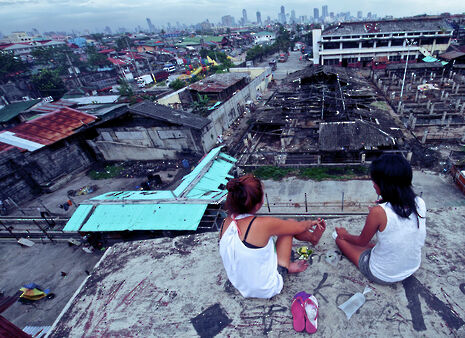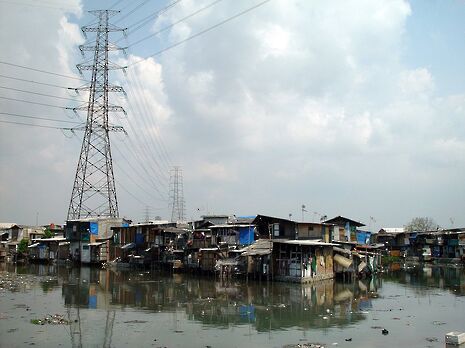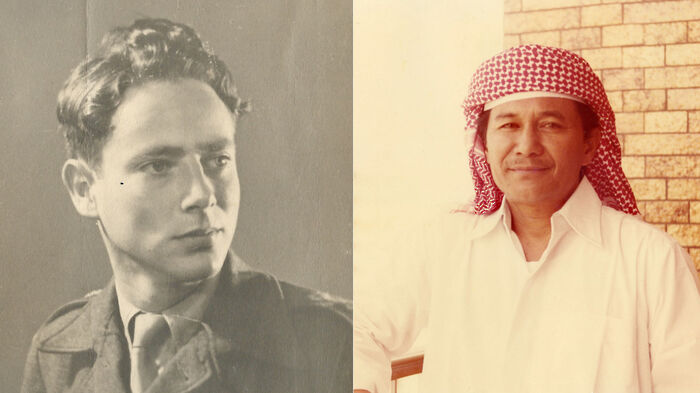Unequal lives in Cambridge and beyond
Worldwide inequality is an issue that’s too easy to escape. Columnist Inez Daltrop has seen it with her own eyes

Inequality can manifest itself in different ways and under different circumstances. It’s everywhere. Growing up in countries where a vast amount of the population lived below the poverty line really put this into perspective for me. I lived in the Philippines from the age of one until I was 13 years old, then moved to England and lived there for three years, and then returned to South-East Asia to finish high school in Indonesia. Despite rapid economic growth and reductions in poverty in Asia in recent years, inequality is increasing.
The contrasts I saw in Manila and Jakarta were always shocking – malls were often built next to dumpsites, and mansions next to slums. I was confronted with the harsh reality of extreme poverty every day, whether it on the way to school or during outdoor sports lessons. But there were always structures that physically separated me from the real world: I lived in a gated community, travelled by car rather than on foot, and would play sports at fenced-off school grounds. Despite these barriers, I still managed to gain some insight into the profound effects of inequality on everyday life in these cities.
The contrasts I saw in Manila and Jakarta were always shocking
The schools I attended had initiatives that aimed to educate and involve its students with the local populations. There were week-long community service trips in primary school, and a ‘service hour’ every Tuesday at secondary school. We also had community service schemes that ran throughout the year. These programs were highly interactive and hands-on; the after-school service activities I enjoyed the most involved teaching children new dance routines, or playing football matches with them. I am extremely grateful for the way community service was woven into my education; it never felt like a burden despite it eventually being obligatory for my IB (International Baccalaureate) Diploma.
There were always ways for people to shield themselves from the socio-economic state of the country they lived in so comfortably
One of the best things I did in high school was to help organize a school-wide barefoot charity football tournament. Aside from raising a huge amount of money to support underprivileged people with HIV/AIDS across Indonesia, the tournament saw students, parents, staff and the proposed beneficiaries come together to play friendly games of football. International schools in developing countries occupy highly privileged positions, and I am thankful that the schools I attended in the Philippines and Indonesia actively participated with their surrounding communities.

But there were always ways for people – especially expats – to escape this, and instead shield themselves from the socio-economic state of the country they lived in so comfortably. Refusing to acknowledge the immense inequality that exists in our world today is so much worse when you live in a bubble of privilege – this was far too often the case in Manila and Jakarta. To deny your own entitlement is dismissive of those who constantly suffer hardship.
Another strange trend I observed while living in South-East Asia was the opinion that inequality was only a subject of importance when it created a colossal divide between those in the upper echelons and those that were completely destitute. What one country may consider as disadvantaged might be seen as favourable by another; sometimes I would even hear Indonesians or Filipinos minimising or even invalidating the inequality in developed countries because of the massive disparity that existed in their own country. While I understand that different places, and therefore the people that inhabit them, view inequality, poverty and social injustice in different ways, these should not be defined by a specific geographic location.
Back in Cambridge, it’s no secret that our city is home to some of the poorest areas in the country, including Arbury and King’s Hedges – the number of people living in poverty is shamefully large. But how can one of the best universities in the world allow itself to become the most unequal city in the entire country? My five years living in England have revealed how inequality here is more hidden, even though it has risen sharply during the decade since the 2008 financial crisis. Although the disparity is not nearly as wide as in Indonesia and the Philippines, it should not be ignored; the fact that it manifests in less obvious ways means it is already vulnerable to being dismissed completely.
 News / Eight Cambridge researchers awarded €17m in ERC research grants27 December 2025
News / Eight Cambridge researchers awarded €17m in ERC research grants27 December 2025 News / Clare Hall spent over £500k opposing busway 24 December 2025
News / Clare Hall spent over £500k opposing busway 24 December 2025 Comment / League tables do more harm than good26 December 2025
Comment / League tables do more harm than good26 December 2025 Comment / The ‘class’ of Cambridge24 December 2025
Comment / The ‘class’ of Cambridge24 December 2025 News / Caius mourns its tree-mendous loss23 December 2025
News / Caius mourns its tree-mendous loss23 December 2025









